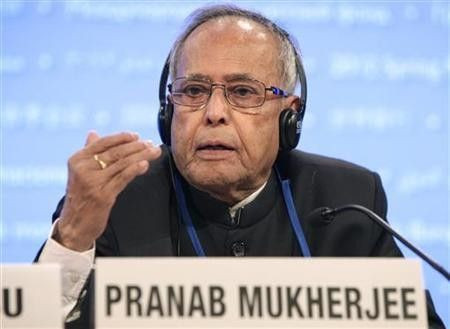India Defers Retrospective Taxation Move; Market And Rupee Cheer

In an interim relief to the foreign investors, Indian Finance Minister Pranab Mukherjee Monday said that the government would delay the implementation of the General Anti-Avoidance Rules (GAAR) by one year.
To provide more time to both the taxpayer and tax administration, to address all related issues, I propose to defer the applicability of GAAR provisions, Mukherjee said while addressing the parliament after introducing the Financial Bill 2012.
The positive gesture from the minister immediately reflected in the market as the Sensex gained and rupee strengthened against the dollar.
The BSE Sensex ended at 16,913, gaining 82 points and the Nifty ended at 5,114, up by 27 points. The rupee strengthened to 53.01 from 53.20 after the announcement.
The GAAR was proposed by the government to crack down on those who exploit tax havens like Mauritius to evade paying taxes in India.
Mukherjee was forced to soften his stand on the GAAR as the confusions on certain provisions in the bill regarding retro taxing of overseas mergers and acquisitions led to an exodus of funds from the Indian market.
Concern among the foreign investors, who are key players in Indian equity market, regarding the GAAR had hit the Sensex and rupee hard leading to sharp drops.
According to the proposed amendments to the Income Tax Act of 1961, in the Finance Bill 2012, offshore mergers and acquisitions that result in transfer of Indian assets would be taxed with retrospective effect.
The proposed law, if passed, would enable the Indian authorities to claim more than $2 billion on the British telecom company Vodafone from a 2007 deal. However, Mukherjee refused to give any kind of relief to Vodaphone in the tax dispute but said that the burden of proving tax evasion would lie with the authorities than with overseas investors.
He clarified that the proposed retrospective amendment of income tax law would not override the provisions of double taxation avoidance agreement India had signed with 82 countries, including Mauritius.
Though it is a short-term solution, the delay in the implementation of the GAAR would pacify the foreign investors who kept away from the Indian market.
These comments should provide short-term relief to the domestic markets. However, the decision to put the onus on tax authorities to prove liabilities could infuse some extent of ambiguity and subjectivity into the proposals. said Radhika Rao, an economist at Forecast Pte in Singapore, told Reuters.
The ambiguity in provisions in the GAAR was widely criticized by the foreign investors and trade bodies. The US also had raised its concern to Indian government about the proposed retrospective taxation provisions.
Mukherjee announced a slew of measures, including the rollback of 1 percent excise duty on both branded and unbranded jewelry, and raised the threshold limit for the proposed tax collection at source on cash purchase of jewelry from 0.2 million to 0.5 million rupees.
© Copyright IBTimes 2024. All rights reserved.






















